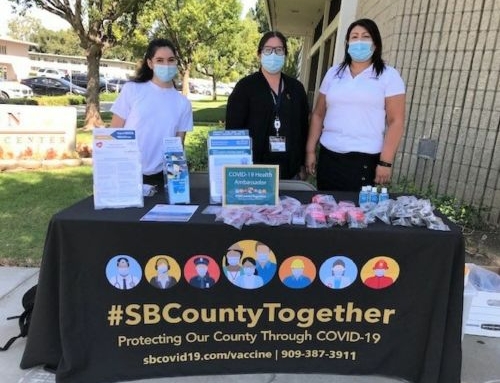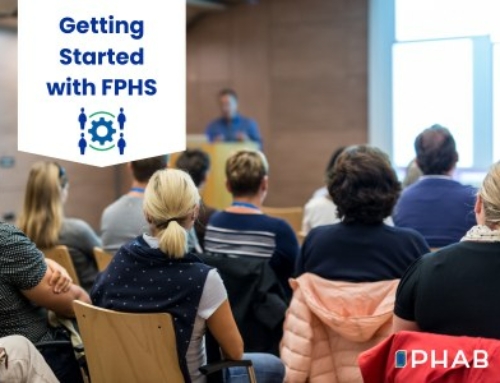Innovation Description
The Kansas Association of Local Health Departments (KALHD) is advancing planning, piloting, and documenting the evolution of a foundational public health services (FPHS) model in Kansas, as well as evaluating the use of cross-jurisdictional sharing (CJS) for specific FPHS components. Significant progress has been made in several areas, including a literature review of FPHS efforts in other states, development of the Kansas FPHS model, an assessment to measure current capacity to deliver FPHS, and a fiscal assessment to estimate the cost of full implementation of the Kansas FPHS model. More recently, the partnership has engaged cross-sector partners to determine the feasibility of applying the model in a rural, decentralized state and evaluating the use of cross-jurisdictional sharing for specific FPHS components. The project has resulted in the development of a statewide roadmap and logic model designed to highlight milestones that need to take place at the systems level to support FPHS implementation; a successful local pilot planning project and replicable local implementation plan; a thorough review of Kansas statutes and policies to identify support for and challenges to implementation of FPHS; and identification of performance measures to ensure accountability under the new model of public health service delivery.
Major Accomplishments
- The FPHS project is increasing awareness of and support for FPHS among local health department administrators. In a 2018 statewide survey, 66% of local health department administrators in Kansas reported either a moderate or high level of understanding of FPHS, and 60% reported support of FPHS.
- The FPHS project has resulted in a thorough review of Kansas statutes and policies to identify requirements, explicit authorizations, implicit authorizations, and barriers to providing FPHS. This review will be the basis for developing a future advocacy proposal to strengthen public health statutes to ensure provision of FPHS.
- The project led to the identification of a local pilot site comprised of four counties (public health jurisdictions) with a strong history of working together, supportive Boards of Health, and a strong, passionate leader who not only championed efforts within the pilot team but also with the broader KALHD membership.
- The project led to the development of tools to aid in and document the FPHS planning process of the local pilot team, which was the first group in the state to engage in such efforts.
- The project brings partners together in the planning and hosting of meetings to ensure Board of Health/County Commissioner and community partners all have input in the planning process, thereby increasing their knowledge of and commitment to this work.
- A local implementation plan was completed, thus allowing other jurisdictions to replicate the planning process of the pilot team.
- The FPHS project resulted in the development of a statewide roadmap outlining both technical and adaptive challenges that need to be addressed at the systems level in order to support broad implementation of FPHS.
Barriers & Challenges
- Identifying and recruiting a pilot site was challenging. Most local health departments in Kansas serve rural communities where concerns of change may be amplified due to limited funding, staffing, and concerns regarding the ability to ensure a minimum package of services while also meeting other community needs.
- Effectively engaging Boards of Health/County Commissioners in the local pilot planning process and making the continued “case for change” for moving to a new model of public health service was not easy, especially in a rural community where it is essential to demonstrate that such a systems change is not only achievable but also serves to strengthen delivery of local public health services.
- Identifying the most useful tools to include in the local implementation plan to support replication of efforts was challenging.
- Navigating the many moving parts of the project proved challenging, including determining the appropriate scope of activities, level of prescriptive detail, responsible partners, and whether to include both technical and adaptive challenges within the statewide roadmap.
- Communicating and educating about the work in a variety of venues and to multiple audiences with varying degrees of knowledge about public health and/or FPHS proved challenging.
Replication Efforts
At the outset, it is important to define your vision for change and build the case for why change is necessary and will be an improvement from the status quo. For jurisdictions looking to replicate this work, some prerequisites must first be considered, including the development of a model for FPHS, assessment of current system capacity, and assessment of potential cost of implementation. Through systems-level partnerships, coordinate an overarching project management team with the ability to provide education and awareness of the new model and to cultivate champions to lead local planning efforts. The project team should be responsible for coordination of efforts, research, and support to the local teams tasked with in-depth review and planning for implementation. The reports and tools developed through this project will aid in developing a successful planning process.
Resources
- Innovation Summary Document
- Case Study Report





